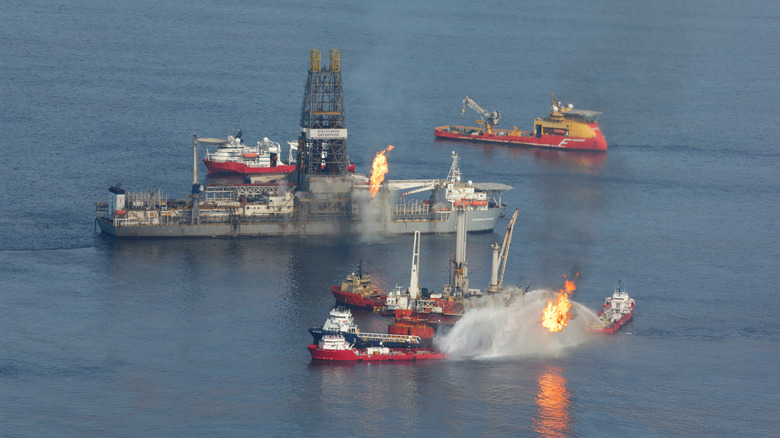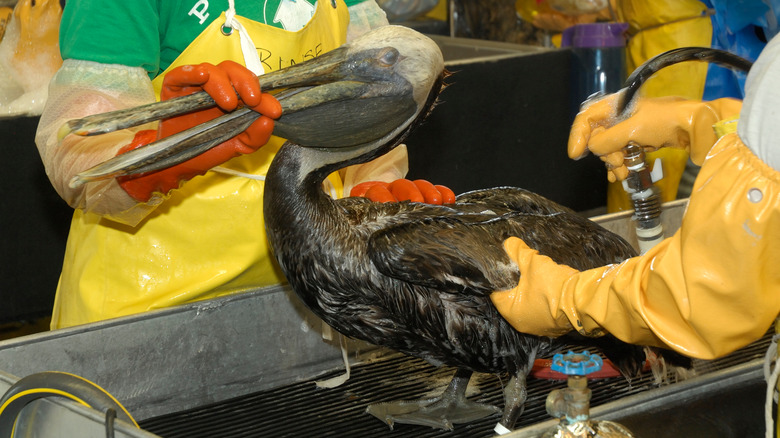We Could Have Avoided The Deepwater Horizon Oil Spill. Here's How
In early October 2021, an oil rig off the California coast did what oil rigs tend to do: it malfunctioned and sent 126,000 gallons, or around 3,000 barrels of oil pouring into the waters of the Pacific. According to Reuters, the oil slick spread out to cover 13 square miles of ocean surface. The mayor of Huntington Beach, the coastal city most directly affected by the spill, called the incident an "environmental catastrophe" and challenged the company responsible to take action to clean it up. "Our wetlands are being degraded and portions of our coastline are now covered in oil," she said.
While small compared to other accidents of its kind, the California spill served as yet another stark reminder that our dependence on oil is the blatantly obvious key to our own downfall. It harkened back to another similar but much larger disaster from years earlier. According to Britannica, the Deepwater Horizon oil spill released almost 5 million barrels of oil into the Gulf of Mexico in April 2010. Despite the size of that calamity, it was completely avoidable, had those operating the oil rig shown a little more prescience. (All spills, in fact, are avoidable by switching to safer renewable sources of energy.) Let's take a look at that terrible event and see what could have been done to avert it.
BP failed to properly maintain the rig that caused the Deepwater Horizon
Despite a film starring Mark Wahlberg meant to lionize those responsible for the Deepwater Horizon spill, the truth of the matter is that the disaster was caused by corporate negligence and a failure to heed the tell-tale warning signs of malfunction. According to Reuters, a White House commission created by President Barack Obama to investigate the accident found that BP simply failed to ask an expert engineer about the surprising results of a negative pressure test on the rig's machinery.
"If anyone had consulted him or any other shore-based engineer, the blowout might have never happened," said the commission in a statement. Chief counsel Fred Bartlit said that the sad truth of the incident is that it was "an entirely preventable disaster." It never should have happened. "Poor decisions by management were the real cause."
BP, of course, disagrees. Despite completely bungling the rig's management, in hindsight the company said it had a "good understanding" of what went wrong thanks to its own investigation. That understanding, however, came far too late, and the spill affected the environment, economy, and people's livelihoods in the region for years.

